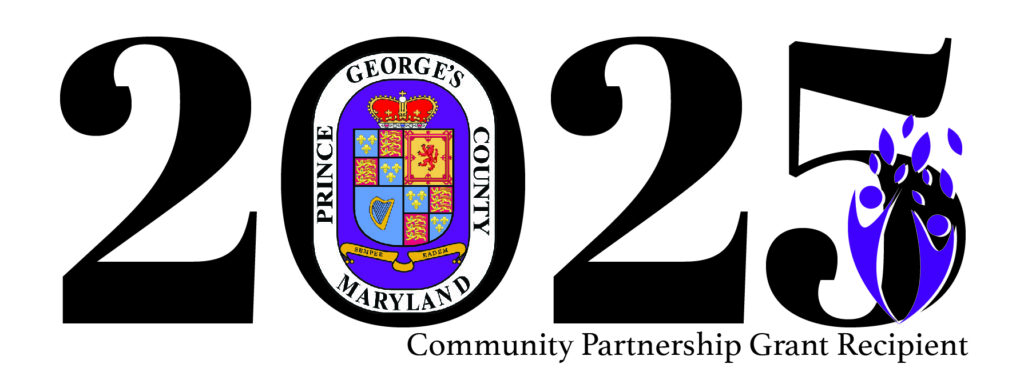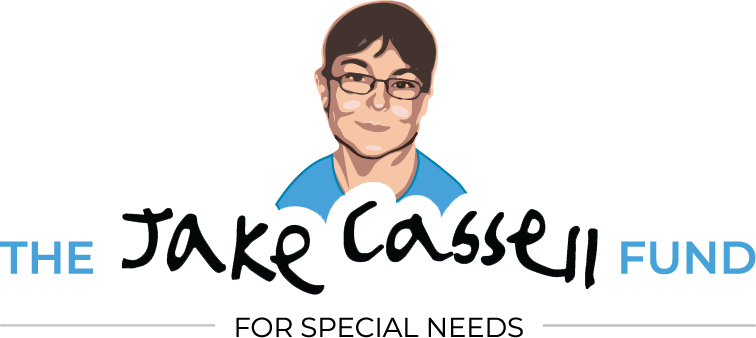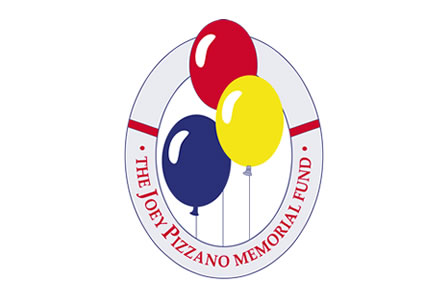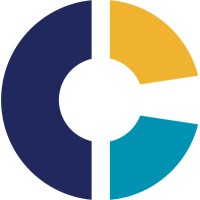Our Approach
The Foundation Schools' focus is improving outcomes for all students by providing an integrated approach addressing each student’s unique academic, behavioral, and social/emotional needs in a safe and supportive learning environment.
We are approved by the Maryland State Department of Education and the Office of the State Superintendent of Education in the District of Columbia and adhere to State and District standards and assessments.
We promote a team approach that values cooperation and collaboration and involves students, school personnel, parents, and the community. We also provide job embedded professional development that contributes to a highly qualified, dedicated staff.
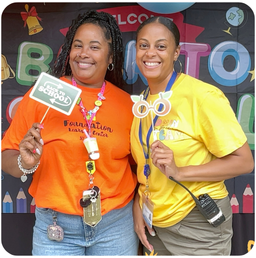

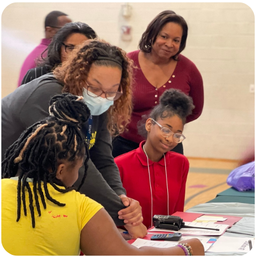
Academics
The elementary and middle school program serves students in grades 1-8 at our Gaithersburg campus and K-8 at our Largo campus. School personnel work as a team to improve student achievement, reduce problem behaviors, and improve overall social/emotional well-being. Students are instructed at their individual level based on their Individualized Educational Programs (IEP) and ongoing assessment data. Teachers use evidenced-based strategies to actively engage students and increase their success rates in school.
- The Maryland College and Career Readiness Standards drive our instruction and prepare students for lifelong learning. The school curriculum includes all subjects required by the state and local school systems.
- Academic instruction combines a strong emphasis on basic skills as well as higher-order thinking
- Teachers use standardized measures to determine appropriate instructional levels and to assess student progress
- Throughout the school year, teachers monitor progress toward students’ IEP goals and use data to make instructional decisions for maximizing student progress
The Foundation Schools promotes the belief that all students can learn and make good choices. School personnel use:
- Explicit instruction
- Clear expectations
- Structured routines to promote independence and coping skills
Because we serve students who have a history of difficulties in school, we use a Positive Behavioral Support Model that incorporates social skill instruction and continuous performance feedback throughout the school day. Teamwork and a sense of community are emphasized through cooperative learning groupings and planned social activities. Students are taught skills that can be generalized to their homes and communities. The goal of the elementary program is to teach and prepare students to return to a less restrictive environment, ultimately a general education classroom in a public school setting.
The high school program serves students in grades 9-12. High school students’ educational needs are defined in the Individualized Educational Program and have two primary components: academic and pre-vocational with an emphasis on post-secondary goals.
The Maryland College and Career Readiness Standards drive our instruction and prepare students for lifelong learning. The school curriculum includes all subjects required by the state and local school systems.
The goals for our high school students are to:
- Obtain a high school diploma.
- Return to their home school district: If students have an interest in returning to their home school district, more emphasis is placed on the general curriculum. Transition to a public school setting utilizes a highly structured process that involves the students, their families, school system personnel, and The Foundation Schools’ staff.
- Find their career path: Students who have post-secondary goals of gaining competitive employment, acquiring pre-vocational skills, and exploring job opportunities may receive services from the Career Connections In-School Workroom Program. Behavioral goals are monitored daily and achievement is celebrated weekly. Finally, if appropriate, students may be provided with job coaches and work part of the school day in the community.
-
- This program provides students with
- Career exploration opportunities
- Supervised and simulated work experiences within the school environment.
- Students learn technical skills
- Resume crafting
- Application processes
- Interviewing
- Accepting corrective feedback
- Communicating with co-workers
- This program provides students with
The Foundation Learning Center is a special education day school which delivers an innovative school program and support services for children with autism, developmental delays, or other learning challenges. The program operates nearly year-round, as a 12 month program.
The Foundation Learning Center utilizes multiple evidence-based programs that help students:
- Meet individual academic standards
- Increase language and communication skills
- Enhance self-esteem
- Regulate emotions
- Develop appropriate social skills
State-of-the-art technology is fully integrated into the curriculum.
Ongoing professional development builds the skills our teachers, teacher assistants, clinicians, behavior specialists, and support staff needs to deliver effective and tailored academics, behavioral analysis interventions, and social skills training.
Every student comes to The Foundation Schools with social, emotional and learning challenges that impede their ability to succeed at school and in their daily life. Because each student has a unique set of challenges, we develop an Individual Educational Program (IEP) tailored specifically to maximize their strengths and create new opportunities. Response to this personalized integrated approach may allow students to return to a mainstream environment or guide them through graduation and beyond.
Our curriculum adheres to Maryland College and Career-Ready Standards and is tailored to each student’s specific learning needs. Formative student assessment is based on curriculum-based measures as well as local and state assessments including the Maryland Comprehensive Assessment Program (MCAP) testing.
Integrated technology provides students with high-quality interactive learning. Extracurricular activities, such as specialized educational outings, support our students’ individualized sensory needs. A team approach values cooperation and collaboration and involves students, school personnel, parents, and the community.
Counseling, therapeutic services, Positive Behavior Interventions and Supports (PBIS), and social skills training are important components of the program. The PBIS program is one of positive encouragement and role modeling that emphasizes social and emotional learning, integrates applied behavior analysis (ABA) interventions, and enhances positive social interaction across all settings.
Social Skills Training
- Teaches recognition of emotional and sensory arousal levels and needs
- Teaches self-regulation of behaviors, emotions, and attention
- Helps students discover success in academic and non-academic areas
- Helps students develop physical and emotional health and wellbeing
Specialized Counseling and Therapeutic Services
- Individual and group social skills counseling
- Recognition of emotional and sensory arousal levels and needs
Behavior Management & Related Services
We offer intensive behavior supports to meet each student’s individual needs. These supports start with a school-wide behavior management system that includes a points and levels system, incentives, and consequences.
Our behavior management system includes the components of School-Wide Positive Behavior Interventions and Supports (SWPBIS). Through the behavior management system and explicit social skills instruction, students are explicitly taught to demonstrate appropriate behavior and are provided with opportunities to practice appropriate behavior.
Students are charged with monitoring their behavior in conjunction with feedback from the staff of The Foundation Schools and they receive rewards for accomplishing behavior goals. In addition to the school-wide behavior management system, students who require additional supports in this area may have increased counseling, a dedicated aide, or an individual behavior plan to address a specific negative behavior.
Therapeutic supports are available to all students. We offer individual and group counseling on a variety of topics. The goal of this school-based counseling is to help students be more school-ready and more available for learning. Topics for school-based counseling include:
- Drug and alcohol education,
- Drug and alcohol prevention and counseling
- Violence prevention
- Trauma-informed cognitive behavior therapy
- Anger management training
- Social skills development
- Grief and loss counseling
- Peer mediation
- Conflict resolution
- Intensive crisis intervention.
Therapeutic services are provided using a variety of modalities, including talk therapy and play therapy, and may be provided as a pull-out service or within a classroom. Case management services are provided by the therapists at The Foundation Schools to establish collaborative communication with each student’s parent/guardian as well as the student’s outpatient treatment providers or supports.
Therapists and Foundation Links staff will also work with parents to help prevent or address truancy issues with students.
The Foundation Schools also provides other related services as required by a student’s IEP including:
- Dedicated aides
- Speech/language services
- Occupational therapy.
The Foundation Schools team also includes consulting psychiatrists who are available to consult with outside psychiatrists, work with parents/guardians, and provide medication management when appropriate.
Supportive Services
Since 1998, Foundation Links has been a vital wrap-around program at The Foundation Schools that addresses student disengagement, truancy, mental health, family issues, and basic needs. Through home-based and after-school outreach interventions, the Foundation Links program connects students and their families to quality community-based resources and works toward the following goals:
- Attendance
- Basic needs
- Family support
- Medication support
- Community resources connections
- Student emergencies
- Student documentation
Students who have post-secondary goals of gaining competitive employment, acquiring pre-vocational skills and exploring job opportunities may receive services from the Career Connections In-School Workroom Program. This program provides students with career exploration and supervised, simulated work experiences within the school environment. Behavioral goals are monitored daily and achievement is celebrated weekly. If appropriate, students may be provided with job coaches and work part of the school day in the community.
Students learn technical skills such as:
- Resume crafting
- Application processes
- Interviewing
- Accepting corrective feedback
- Communicating with co-workers
- Being absent from work
- Resigning from the job.
The Food for Thought program acknowledges the importance of every meal, as more than 80 percent of our students fall below the poverty line and many of our families are unable to ensure that their children have access to a healthy breakfast and lunch daily. This program ensures all students receive the proper nutrition and nutrition education to be successful in school.
